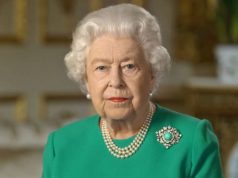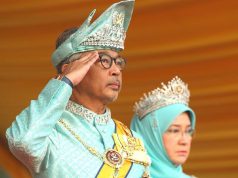London – Scottish First Minister Nicola Sturgeon (pic) on Monday said she plans to seek the devolved parliament’s approval next week to hold a second referendum on Scotland’s independence from Britain.
Sturgeon said she believes a referendum should take place between autumn 2018 and spring 2019 after her efforts to seek a compromise over Britain’s exit from the European Union were met with a “hardline response” from British Prime Minister Theresa May’s government.
“Scotland stands at a hugely important crossroads,” Sturgeon, who leads the Scottish National Party, told reporters ahead of a crucial vote in the British parliament that could allow May to trigger formal Brexit talks as early as Tuesday.
May wants lawmakers to back her plan to trigger Article 50 of the Lisbon Treaty – which sets the rules for a nation negotiating its exit from the EU over a period of two years – by the end of March.
More than 60 per cent of voters in Scotland opted to stay in the EU in the Brexit referendum in June, while 52 per cent voted for Brexit across Britain and Northern Ireland.
Sturgeon’s timeframe would see the independence referendum held before Britain leaves the EU, but after many of the Brexit terms become known.
“On the eve of Article 50 being triggered, not only is there no UK wide agreement on the way ahead – the UK government has not moved even an inch in pursuit of compromise and agreement,” Sturgeon said.
“All of our efforts at compromise have been met with a brick wall of intransigence,” she said.
If, as expected, the Scottish parliament backs her plan to begin talks on holding a referendum with May’s government, May would need to table a bill in the British parliament.
May has previously said she opposes a second independence referendum.
In the last referendum in 2014, 55 per cent of voters opposed Scotland breaking away.
Sturgeon has urged May to find a way for Scotland to retain the benefits of the single market if, as expected, Britain leaves the trade bloc as well as the EU after Brexit.
“Even at this late stage, I am not turning my back on further discussion,” she said.
She will “continue to stand up for Scotland’s interests during the process of Brexit negotiations.
“But I will take the steps necessary now to make sure that Scotland will have a choice at the end of this process – a choice of whether to follow the UK to a hard Brexit, or to become an independent country able to secure a real partnership of equals with the rest of the UK and our own relationship with Europe.”
– dpa











